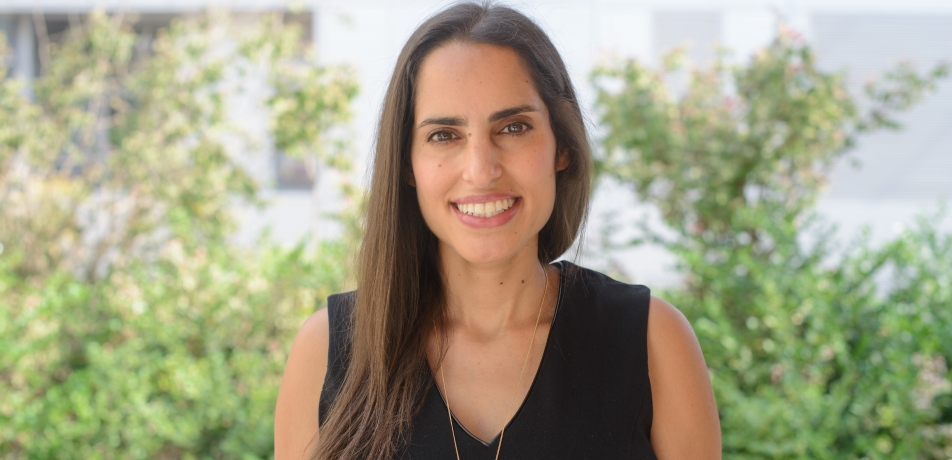Dr. Efrat Shema
The epigenetics of cancer
New scientists

Dr. Efrat Shema
Within the nanoscopic depths of the human cell nucleus, a two-meter spool of DNA is tightly coiled around tiny, ball-shaped nucleosomes. Many scientists are hard at work understanding these nucleosomes, with the knowledge that they may play a pivotal role in regulating gene expression and the development of diseases like cancer.
Dr. Efrat Shema, of the Department of Biological Regulation, works with the histone proteins making these nucleosomes, which are collectively responsible for packaging and organizing DNA strands. As these proteins undergo modifications, they can alter the accessibility of different regions of the DNA and dictate which genes will be expressed. Such modifications are a critical part of the regulatory systems that determine how stem cells differentiate into specialized cells, how cancer cells avoid chemotherapy, and how tumors survive.
“We have the same DNA in all of our cells, but every cell is different,” Dr. Shema explains.
During her postdoctoral fellowship, she developed a revolutionary technique that could record the position and modification state of each histone, using fluorescently labeled antibodies and a type of technology called single-molecule total internal reflection microscopy.
When combined with single-molecule DNA sequencing technology, her approach revealed the changes occurring in thousands of individual histones. Zeroing in on this basic mechanism is particularly relevant to science today, due to the involvement of these proteins in disease development. For example, Dr. Shema explains, more than half of all cancers have known mutations in the genes that encode for proteins that regulate DNA packaging.
Dr. Shema aims to continue studying such basic mechanisms of cancer biology, as well as develop new tools that she hopes will “pave the way for novel things to be discovered,” she says. Among her specific plans include the generation of the first-ever genome-wide map of combinatorial histone and DNA modifications. Such a map could provide insights into the epigenetic changes—those changes that alter gene activity without modifying the DNA sequence—which are involved in stem cell differentiation and cancer cells.
Dr. Shema also plans to analyze the pattern of histone modifications in pediatric glioma, a type of brain cancer characterized by a high occurrence of mutations in the genes encoding histones. Another goal of her lab is to examine the cell-free nucleosomes that circulate in the bloodstream, whose DNA content and tissue of origin remains difficult for scientists to detect. It is Dr. Shema’s hope that her work could lead to a new test that could overcome these barriers, providing early detection of various types of cancers.
Both she and her identical twin sister, Dr. Reut Shema, earned PhDs from the Weizmann Institute.
“In a scientific world that is still influenced by gender biases, it is critical that all girls have the same opportunities as we did to pursue their desired career paths from a young age,” she says.
As a youngster, it was this mentality, coupled with her curiosity and aptitude for biology, that fueled her own path forward, she says. While she dabbled with the idea of pursuing piano and music professionally, she ultimately chose to continue studying the sciences after focusing on biology in high school.
“I like the process of doing research and asking questions, devising hypotheses, trying to design experiments,” she says. “You keep evolving when you do research.”
Born and raised in Rehovot, Dr. Shema completed her MSc and PhD at the Weizmann Institute in 2007 and 2012 in molecular cell biology, after earning her BSc in life sciences at the Hebrew University in Jerusalem in 2005. She moved to Boston in 2012 as a Fulbright Scholar, conducting postdoctoral work under Dr. Bradley Bernstein at Massachusetts General Hospital, Harvard Medical School, and the Broad Institute of MIT and Harvard.
During her PhD studies at the Weizmann Institute, Dr. Shema received a prestigious Adams Fellowship from the Israel Academy of Sciences and Humanities, as well as the Otto Schwartz Prize for Excellence and a UNESCO-L'OREAL national award for young women in life sciences. As an undergraduate at the Hebrew University, Dr. Shema participated in the national Amirim program for outstanding students and received the Dean's Scholar award each year.
Dr. Efrat Shema is supported by The Benoziyo Fund for the Advancement of Science and The Willner Family Center for Vascular Biology.








